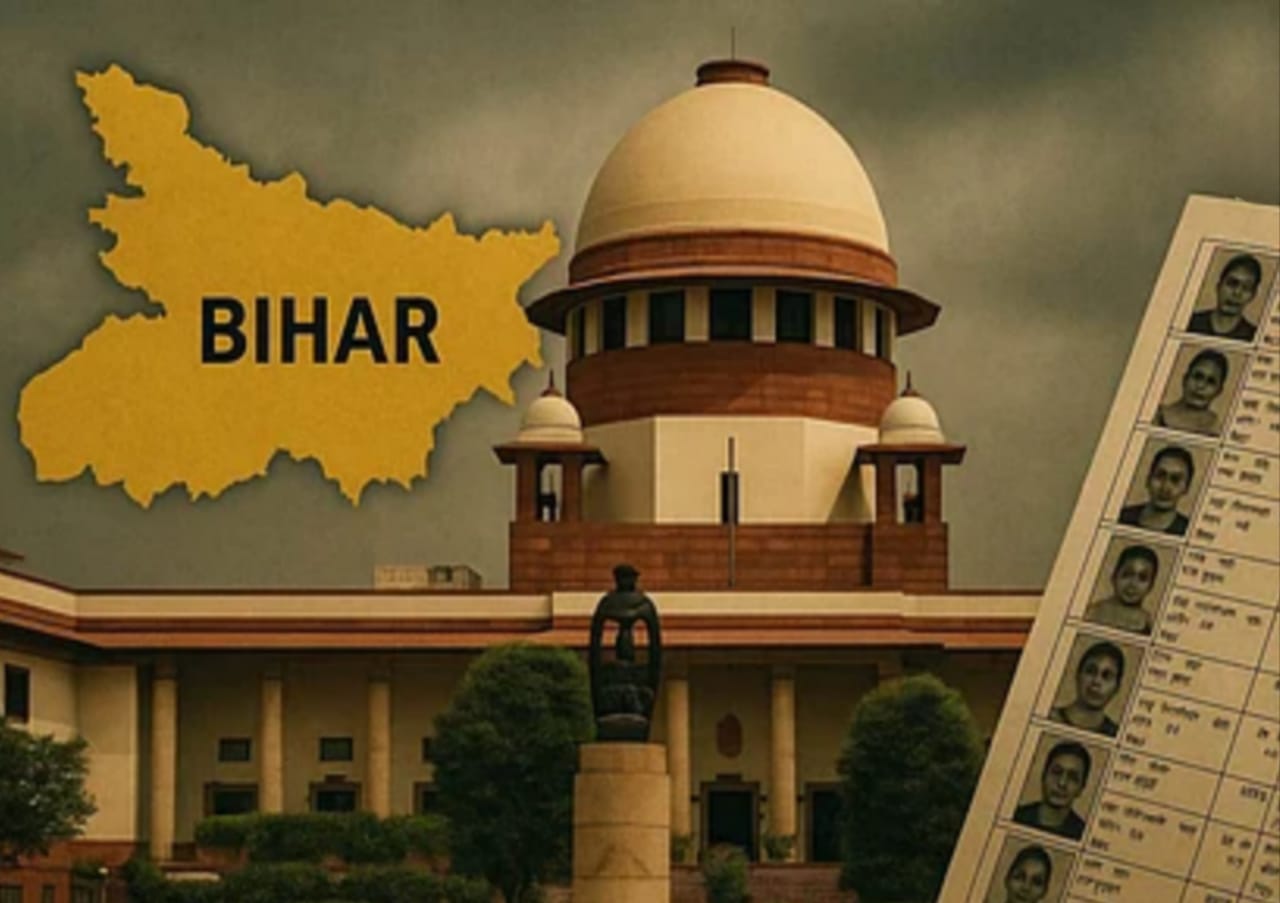
New Delhi:
On Tuesday, the Supreme Court urged vigilance over the Special Intensive Revision (SIR) of Bihar’s electoral rolls, cautioning that if there is evidence of significant exclusion, it will intervene decisively. The court fixed hearings for 12 and 13 August to examine multiple pleas challenging the process.
A Bench comprising Justices Surya Kant and Joymalya Bagchi responded to allegations that up to 65 lakh voters might be excluded when the Election Commission publishes its draft list. “If there is mass exclusion, then we will immediately step in,” Justice Kant declared, addressing the fears raised by civil society and political petitioners.
Advocate Prashant Bhushan, representing the Association for Democratic Reforms, told the court that missing enumeration forms, due to death or migration, meant such voters would need to reapply for inclusion. The Judges pressed the petitioners to produce specific examples, with Justice Bagchi stating, “Bring 15 people saying they are alive” poignantly highlighting procedural accountability.
The court, while refusing to stay the SIR exercise or delay the draft roll’s publication on 1 August, reaffirmed its oversight. Justice Kant emphasised that “it is only a draft” and noted that publication would not limit the court’s power to strike down flawed decisions later.
Importantly, the Court directed the Election Commission to include Aadhaar and EPIC cards in the list of acceptable identity documents. Observing that “any document on this Earth can be forged,” the bench nonetheless deemed these two documents to carry a “presumption of correctness,” underlining the need for broad inclusion instead of blanket rejection.
The SIR process has become controversial ahead of Bihar’s Assembly elections, with the Election Commission confirming that approximately 35 lakh voters remain untraceable. The EC maintained it consulted major political parties during the exercise and opened channels for objections to the draft list starting 1 August.
Politically, opposition parties contend the revision disproportionately affects marginalised communities, including Dalits and OBCs. Trinamool Congress National Secretary Abhishek Banerjee signalled heightened party mobilisation in Delhi, stressing that the lack of clarity on voter exclusion has intensified their agitation.
Meanwhile, JD(U) MP Girdhari Yadav criticised the timing of SIR, during Bihar’s monsoon season, arguing that migrants and poor citizens found it impractical to submit documents within the short window ending 25 July. He called for a six‑month revision period instead.
Still, the Election Commission maintains SIR is a legitimate constitutional exercise aimed at updating voter lists and removing duplicates, deceased entries, or permanently migrated individuals. The EC has offered a claims period after the draft publication for remedial action.
As the case advances, the Supreme Court’s August hearing will be closely watched. With mounting concerns over democratic integrity and electoral rights, the court’s determination could shape how similar voter list exercises are conducted across the country.